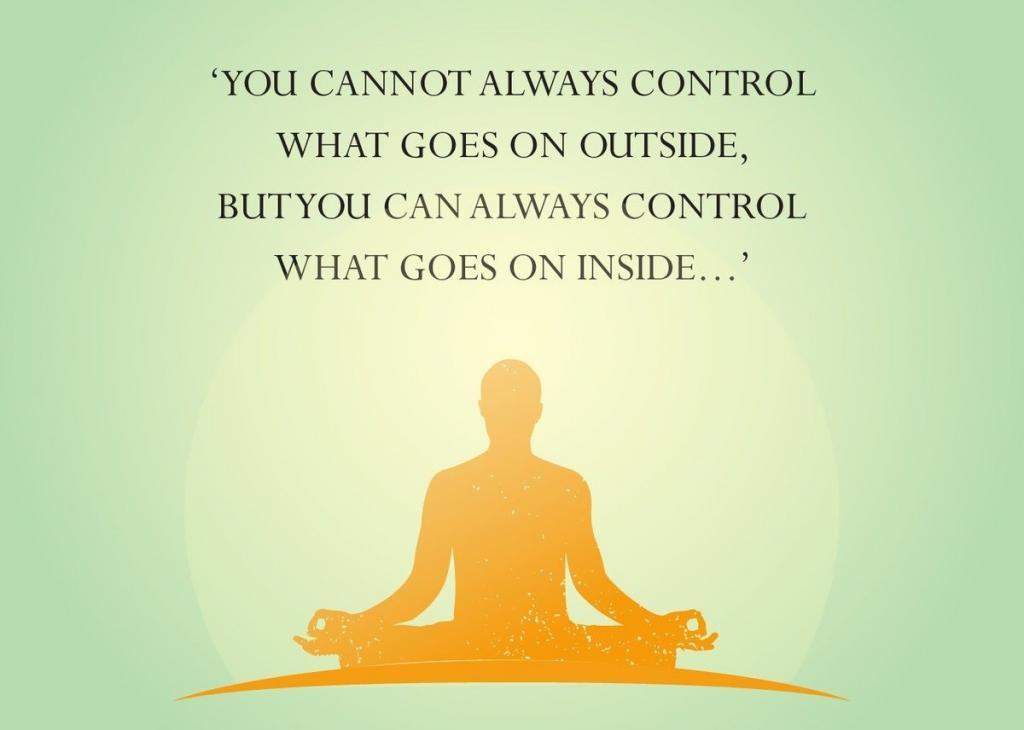What is Mindfulness-based CBT?
Mindfulness-based cognitive therapy builds on cognitive therapy’s principles by teaching people to consciously pay attention to their thoughts and feelings without judgement.
Mindfulness is a shift in the way that you pay attention but through that subtle shift, your entire world can transform from the inside out. Some time ago we posted a fun video perspective that explains a bit about how to practically apply mindfulness and how mindfulness works, however, we decided today to explore the topic of mindfulness a bit further.
When it comes to mindfulness there is understanding it, and then there’s knowing it and challenging it directly through your own experience.
While you may still not completely understand mindfulness as a key concept yet but I can virtually guarantee you you’ve already experienced mindfulness if you can remember a time when you were completely focused on an activity.
At that point were all over the place and thinking about work, bills, children or the many things you needed to do later, every fibre of your life force was absorbed in the present moment maybe you caught your breath at an exquisite sunrise or maybe you experienced it spontaneously when you were surfing or climbing a mountain or simply alone in nature.
Yogi’s and dancers know mindfulness when they lose themselves in the joyful movement of the body and artists know it when they’re absorbed in the act of creation finding yourself in these moments you experience a deep sense of connection as your life emerges and you feel your true life force that simply radiates focused energy and peace of mind.
Scientists now concur that there is great wisdom in many traditions that have long been telling us that all the keys to fulfilment and to true well-being lay not in the external circumstances of our lives but the internal state of our minds and the quality of our consciousness.
Mindfulness is truly the hub structure of all wisdom culture throughout history it’s the basis for all spiritual discipline ever presented and most importantly the answer to sincere and permanent realisation and fulfilment.
There are three key components to understanding mindfulness, three meaningful ways in which your attention shifts direction.
Firstly our attention is held with purpose, mindfulness requires conscious and very deliberate conduct of our greater awareness. So when you are being mindful you could say that it is the polar opposite of being in autopilot mode (unfortunately autopilot mode is for most of us our default state throughout the day). Unfortunately, whenever we are stuck in auto-pilot our minds become exceptionally noisy, it natters away endlessly with all sorts of useless nonsense. When you truly discover mindfulness, it will allow you to essentially wake up from the “autopilot” and directs you to focus your full attention to where you need to consciously direct it.
The second component of mindfulness is that we are immersed in the current or present moment. When we abandon our mind to its own thoughts it will inevitably wander further away from our present moment, as it gets wrapped up in reviving past thoughts and projects them into some imaginary future story. Another way to explain it is that, our minds are very rarely working fully on present moments in our lives. Mindful attention is completely focused on the present moment experiencing life as it exists right here and right now.
Thirdly when practising mindfulness our thoughts are held non-judgmentally and without criticism toward ourselves or others. Mindfulness aims to not to manage, control or even downplay our thoughts, we merely want to start paying real attention to our human experiences without being triggered, judgmental or even labelling or creating stories about them.
Mindfulness permits us to be an “onlooker” of our own perceptions, our continually drifting thoughts and unchecked emotional responses as they happen in real-time, catching wayward thoughts and emotions, before being drawn into their turbulent current or immediately reacting to those direct challenges or “triggers”.
When you’re able to live mindfully you can literally transform your entire world from the inside out and from that place live in harmony with yourself and in harmony with the world around you.
CBT and Mindfulness
There are a number of therapy approaches that include mindfulness training as part of talk therapeutic practices. Mindfulness-integrated Cognitive Behaviour Therapy or MiCBT is a relative newcomer to modern psychotherapy, and at times it can be confusing to understand the differences between mindfulness and CBT. For this reason, it is best to think of mindfulness as a collaborative component to therapeutic conversations. By integrating and adapting mindfulness strategies into CBT and vice versa patients are able to experience a softer more realistic and relatable experience from psychotherapeutic conversations.
Cognitive behavioural therapy or CBT is the bread and butter of all psychotherapeutic modalities this is because it’s one of the few empirically valid talk therapeutic practices proven in clinical trials to effectively treat addictions, depression, anxiety and other mental health issues.
Certain fundamental aspects of CBT have been identified in various ancient philosophical traditions particularly in stoicism the stoic philosopher Epictetus had the belief that cognitive logic could be applied to identify and discard the many internal false belief systems that would lead to mose more destructive emotions.
This influenced the way modern CBT therapists identify cognitive distortions that contribute to depression and anxiety CBT was originated from Aaron Beck in cognitive therapy which was later developed into CBT and Albert Ellis who created rational emotive behaviour therapy or our EBT and came up with the ABC method let’s look at an example of this starting with the activating event.
Simply put, our emotions are our guides and tell us what to pay attention to for our growth, what we need to integrate, and ultimately who we are. Just as many ancient traditions surmised. The problem is we’ve been disconnected from our emotional selves from a young age and we end up in trouble because we’ve never learned to process our emotions at all. We just suppress them with drugs and addictions.
Mindfulness in Recovery
Of the more common ways that mindfulness makes people better able to cope with addiction recovery is that it slows things down to a manageable pace, people in recovery are constantly rushing through activities and creating or being exposed to stressful situations, intrusive thinking and obsessive thoughts. Using mindfulness in recovery helps to quiet the ongoing mental chatterbox, you can begin to realise a deeper sense of tranquillity in the context of your everyday life. Becoming used to the process of pausing a reaction or emotion is very often the stopgap where you would choose to use or not use a substance or addiction based behaviour.
Mindfulness in recovery does not stop at limiting negative thinking but also introduces you to the concept of being realistic and understanding of situations and people and seeing the positive aspects of them. In negative thinking cycles, we tend to get drawn into the doom and gloom and not see the positive learning experiences and beauty in many of these scenarios. Unless you can use mindfulness in recovery it becomes hard to stop objectively look at a situation from an external perspective and see the value in the greater experience. This, in turn, can create harboured emotions and resentments that lead to a cycle of further negative thoughts patterns that in turn can lead back into using substances etc. Mindfulness enables you to break away from that cycle, accept things for what they truly are and move forward.
Mindfulness in recovery provides you with insight and understanding of your emotions that you would not have ordinarily examined. Understanding your fleeting emotions without investing in them directly is a superpower. Things that would have provoked you back into an addiction cycle in the past will wash over you in the future enabling you to respond differently to these kinds of new situations as they arise in the future.
Mindfulness in Relapse Prevention
Allowing ourselves to operate on autopilot will result in a relapse which is why it is so important to be cognizant of triggers and cravings in day to day life and with high-risk situations and learning to accept that whatever is happening at the time you can overcome by acting mindfully and taking charge of your thoughts and looking after yourself in new healthy routines. Let’s also understand the role of being social and not hiding away from triggering scenarios. Triggers will forever be a part of your everyday life and mindfulness will enable you to stop and accept and overcome the situation for what it truly is.
Mindful Substance Use
Many people enjoy the use of substances and they form part of their everyday lives. While long-term addiction may well be the drive for a treatment centre there is still a great many people where destructive use of substances only features for a short period under short-terms resolvable times of stress. Learning to moderate and regulate the consumption of substances in these times of duress is where the practice of mindful harm reduction can be a working solution. With Harm Reduction, people successfully learn methods to regulate their intake to non-destructive levels without stopping their substance use.
Contact South Africa’s Top Treatment Centre
Our treatment and care centre in South Africa works with a broad range of issues such as depression, anxiety, eating disorders, gambling, substance and intimacy disorder recovery. We use world-leading therapy to address underlying trauma with one-on-one treatment counsellors that are able to break through critical barriers to enable you to live your life again to its fullest.








